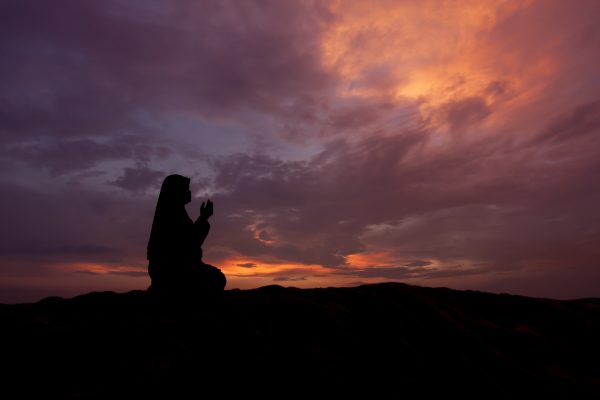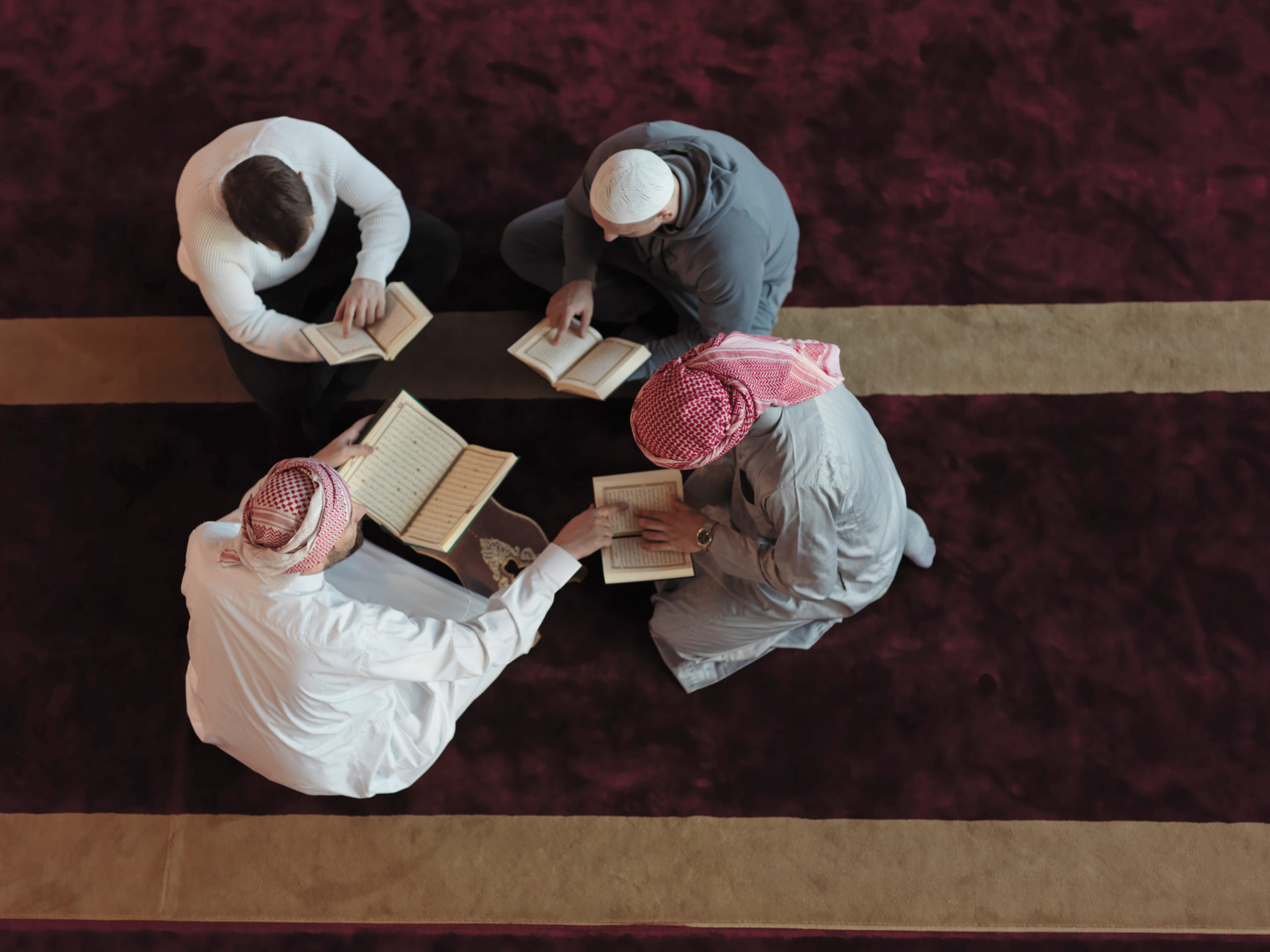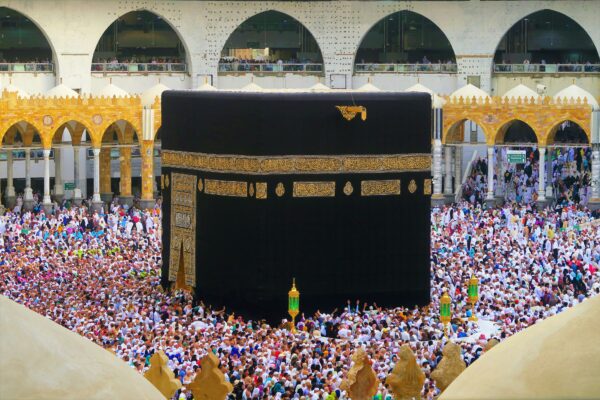In an era where sectarian conflict within the Muslim world is at the forefront of the media, the timing could not be more perfect for a response from the Muslim world using (in my opinion) the most powerful form of media: cinema. Why Can’t I Be A Sushi? is like a research paper in the form of a movie, asking the question of whether one can be a Sunni and Shia at the same time. The thesis of this visual research is the oft quoted verse from the Qur’an:
“And hold firmly to the rope of Allah all together and do not become divided. And remember the favor of Allah upon you – when you were enemies and He brought your hearts together and you became, by His favor, brothers. And you were on the edge of a pit of the Fire, and He saved you from it. Thus does Allah make clear to you His verses that you may be guided.” (Qur’an 3:103)
Exploring this question are two young girls, Niamh and Sofia, who take us on their journey of trying to work out why Muslims seemingly cannot get along.
The film, produced by Spoken Iris Films has some excellent information provided to the girls throughout, who are the eyes, ears and minds of the audience. The film is inter-cut with several interviews from some well-known Muslim clerics, a historian, a professional football (soccer) player and others. There are some really strong scenes, in particular where the girls hold up a sign to see the reactions of passers by in the midst of Speakers Corner in Hyde Park. It is here where we get to see the variety of raw opinions in the Muslim world of how Muslims view ‘the other’. There is no censorship here and the comments heard may be shocking to some who are not familiar with this world, let alone the two girls. As the scene went on it got uncomfortable with the crowd becoming over-zealous so, understandably, it was cut short for the safety of our journalists. However, one hoped we could see it continue longer as it is a powerful sequence that is real and not rehearsed. Niamh and Sofia, after several interviews, begin to realise the inevitable: being a Sunni and Shia at the same time is simply not possible. They are visibly disappointed but then begin to think about why both cannot seem to just coexist; a question maybe the world is also asking right now.
The strength of the film lies in the two protagonists – Niamh and Sofia are charming, captivating and inquisitive. Their innocence, yet maturity, provides the audience with some much needed humour throughout the film even though such a serious issue is being discussed. Credit must also be given to the production quality – this does not look like a budget movie made for YouTube. The photography is beautiful, the editing is sharp and the sequences are expertly assembled.
The film shows that not all Sunnis hate the Shias and not all Shias hate the Sunnis.
It would be fair to say that both Sunni and Shia representation are balanced and accurate and no ‘rogue’ member of each school of thought is made the face of it. The biggest compliment one can pay in this regard is that it would be difficult to work out whether the film-makers are Sunni or Shia. Yet, the film does not shy away from allowing controversial aspects being discussed such as the status of the companions and wives of Prophet Muhammad or the issue of labelling someone as a disbeliever. That said, I am sure there will be Sunnis who do not agree with what some of the Sunnis in the film say and Shias who do not agree with what some of the Shias in the film say. No universal agreement will ever be found on this.
The one thing the film may have thought about more carefully is ‘context’. For the Muslim audience member who is clued up about their religion, they probably would not have learnt anything new from watching the film. For a Muslim, or someone of another worldview, who isn’t clued up about Islam watching this film, they may get lost in certain parts because context isn’t given. Maybe giving more context of the background of Niamh and Sofia, so we can see what angle they are coming from would have helped. The interviewees also mentioned things that maybe only Muslims can understand – for example, one cleric begins talking about Imam Hussain yet the audience are not told who he was. The film assumes a knowing audience yet this film should be targeting those are not in the know either. Running at just over an hour, the film also ends abruptly, which was disappointing. The two young lead journalists had the audience in the palm of their hands and it would not have been a strain to watch the film for another half an hour.
As I left the screening, I thought that the film was painting too much of a romantic image of Sunni-Shia unity. There are some differences, that are deep-rooted in the passions and emotions of Muslims, that are simply irreconcilable and the film doesn’t take these into account. After reflection, though, it occurred to me: that is the point. The film is meant to be romantic and paint an ideal image of Sunni-Shia unity – and why can’t Muslims work towards this? When told through the innocent eyes of two young girls, it is refreshing to see such a simplistic take on it and a bit of a wake up call. The film is pleading for Muslims to unite and not let political agendas widen the gap between them.
Overall, this is an excellent film that is very well-made. Not just that, it is a very important film for the era we live in. The Sunni and Shia may have perceptions of what the other thinks of them. The film shows that not all Sunnis hate the Shias and not all Shias hate the Sunnis. This is why this film should be watched by Muslims who live in fear of the other as well as those non-Muslims wondering why all they see in the media is war and hatred. It should be supported for its noble aims and helped in order for it to reach a wide audience.
It is not possible to be a ‘Sushi’ but the film shows us that it certainly is possible to live with each other in peaceful coexistence. It’s just a case of whether we want it bad enough.





